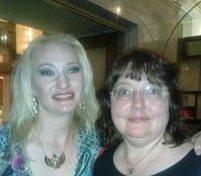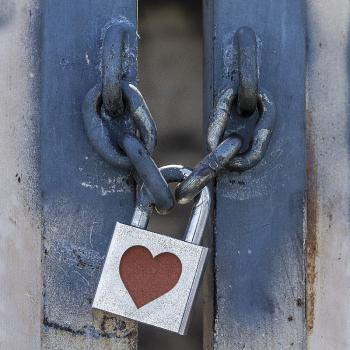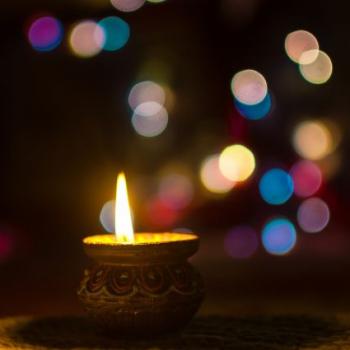
“Ladies of Force and Fire” are fierce! Sixty of us met in Minneapolis on the first weekend in August this year. The single-track event featured eight presentations, a panel discussion, a wine tasting and one blow-the-roof-off ritual. Here are my top six takeaways.
One: We need a women’s symposium.
Question number one for the afternoon panel was: why have a woman’s symposium? Doesn’t that marginalize us? Aren’t we all people and equal in the order?
However many biological genders we identify, our culture at present firmly insists on two, male and female. We’ve made substantial progress in my lifetime toward relaxing the rigid rules that govern appropriate behaviors for both genders. Even so there is a substantial cultural difference in how men and women experience the world. In particular men have the speaking floor: men talk more than women and talk over women. This is true in the general culture and true in Thelemic culture. Before the first women’s conference in 2006 there were very few women speakers for bi-annual convention, afterwards submissions by women increased. It happened this year too, several women said they planned to submit a proposal to the 2017 NOTOCON. The women’s symposium is a feeder for the general convention.
Topics emerged in the conference that don’t always get air time. There wasn’t a single presentation on what Aleister Crowley meant by x thing that he said. Here’s what interested the group: the definition of gender, sexual harassment, women’s biographies, feminism, and stories, those the culture tells, and our own. Also what happened in the halls was at least as important as what happened in the presentations. We connected, traded notes, supported and encouraged each other. We lifted each other up.
Two: It’s not just for women.
The two cultural genders are male and female. Philosophically there are two genders too, but the categories are a little different: man and not-man, which includes trans women, intersex, and genderfluid/genderqueer. Folk who describe themselves with all these words showed up to the symposium.
Rebecca Doll’s presentation reviewed some of the varieties of biological gender which number much more than two. Since Thelemic magic is often presented in terms of a dual gender system, this challenge to the binary became central to the discussion. How can include everyone in the “not a man” category in the full benefits of Thelemic magic?
It may be cumbersome to rename the convention “Women’s, Intersex, Trans and Genderqueer Symposium”, but it’s more accurate and inclusive. (WITQ?)
Three: Feminism is normal.
The night before I presented “Feminist Thelema” at the Women’s Symposium in 2006 I was so nervous I couldn’t sleep. Ten years ago there weren’t all that many Thelemites who had feminist education or activist experience so I felt very much on my own. I had no idea how my ideas would be received. It turned out there were a lot of people who were very interested in the discussion and believed the time had come to have it.
This year the conference not only had feminist speakers on the schedule but a strong sense of support from the attendees. We cheered, clapped, hissed, groaned, and laughed at presenters’ anecdotes and woman-centered ideas.
Four: Women listen to women.
I am an intellectual writer. This makes me a target for the type of Thelemic man who registers me as smart enough to lecture to. That’s why I focus on talking to women, they listen to me as a person who might have something interesting to say.
The woman’s conference is by and for women but not woman-only, men also attended. The great thing about this conference in particular was that the men in the audience gave us their ears. My travel companion and tech support Ted Gill is bright and funny and loves to engage, so when he attends presentations he often holds up his hand to ask a question or add a comment. This weekend he deliberately choose not to interact but instead to listen closely as an ally supporting the women presenters. All the men present similarly ceded the stage and the floor. It was noticed and appreciated!
Five: Every triad needs the support of other triads.
In the O.T.O. there are three groupings of degrees, Man of Earth, Lovers, and Hermit. The initiatory system is about both personal development and committment to the work of the order. At every stage I have longed to talk to women of higher degrees to work through concerns and ideas. This event drew women from the highest ranks of the order who were available both to listen and to offer advice, encouragement, and support. I am profoundly grateful for their time and care. I also try to make myself available to women who joined after I did to answer questions or just provide a cheering section. We need each other all the way up and down the line.
Six: Women are pushing Thelema into the twenty-first century.
In his “Confessions” Aleister Crowley said “I admit that my visions can never mean to other men as much as they do to me. I do not regret this. All I ask is that my results should convince seekers after truth that there is beyond doubt something worth while seeking, attainable by methods more or less like mine.” Crowley’s work is so voluminous and brilliant that some are content to spend their lives reading, admiring, and practicing the magic he laid down. But he never meant to write the final word about Thelema – in many ways he left an outline for others to fill out.
Crowley wrote as a man in a dual gendered system. It’s just harder for women to figure out how to make it work. We each make our own way through the system, but we’re not just parsing Crowley, we’re leaping into the future making new Thelemic works: channeling inspired books, writing rituals, drawing out theoretical frameworks.
Thelema doesn’t work off the rack for me, I have to tailor it by hand. Often I feel as if I’m just outside the circle of people who it was really meant to serve. The women’s symposium seemed to me to open that circle just enough to let me fully and completely in. At the end of the ritual on the last day we all held hands, and we all were crying, so I suspect I’m not the only person who had that experience. To be included and accepted heals a deep heart wound. It was a great gift and I’m grateful for it.
At the event Soror Ixel Balamke interviewed me for her blog Vivian Meretrix, Ella Jensen, Catherine Berry, and our new ombudsman-female Shellay Maughan. Check out the blog!
















